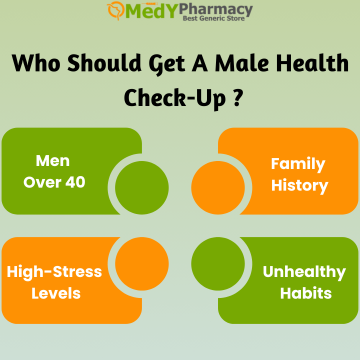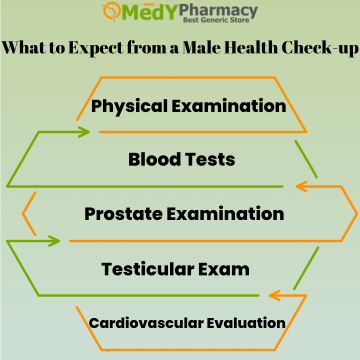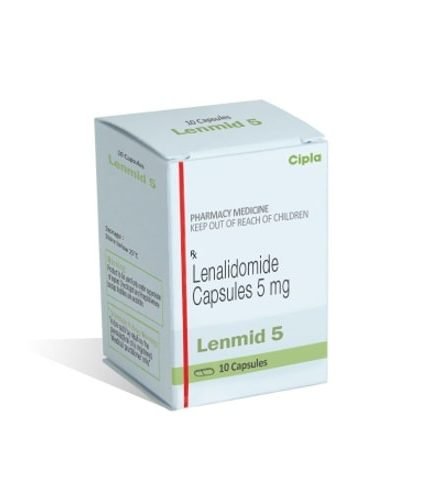Introduction:
Regular check-ups are mandatory, Men must have frequent check-ups after they reach a certain age. This benefits individuals in a variety of ways and enables them to take preventative actions before anything bad happens to them. As males get regular exams, doctors can forecast the irregularities that would cause significant damage to them, allowing for early treatment.
Leaving those issues aside, it is important to understand why you should have frequent checks and at what age you should get them.
Because many serious health disorders do not present signs until the disease has progressed sufficiently, it is recommended to get routine screenings.
Healthcare providers advise males to undergo specific health screenings, particularly if they have a family history of chronic conditions.
Early diagnosis of illnesses such as hypertension, diabetes, cholesterol, and cancer is critical to successful therapy.
Why Do You Need Routine Check-ups?
During routine exams, doctors take note of your blood pressure, sugar level, and cholesterol level. These are the three factors that impose strain on your heart and other organs. Few factors regulate the three key agents of heart attack: you’re eating habits, your exercise routine, and the balance between the two.
If you eat more food than you exercise, your body will store excess calories and fat, which will mix with blood and increase blood pressure, culminating in a heart attack. As a result, when you have regular check-ups, you can determine whether you are eating the right diet for you and keep track of how much exercise you are doing.
This allows you to maintain good heart health at all times and hence stay fit for the rest of your life.
Men, who are typically urged to exemplify strength and resilience, can struggle to prioritize their health. Societal standards that encourage stoicism and the belief in one’s invincibility can discourage men from seeking treatment or acknowledging health issues. As a result, this unwillingness to face health issues can cause delays in diagnosis and treatment, aggravating illnesses that could have been handled more effectively if addressed sooner.
Understanding Health Screening
A health screening is a routine medical check performed by your doctor to detect diseases and assess your risk of getting specific conditions.
The majority of exams include a physical examination as well as simple blood testing.
Regular tests boost your chances of recognizing diseases at an early stage, allowing for more effective and successful treatment.
If going to the doctor feels like a task you’re constantly pushing to the bottom of your to-do list, don’t worry; you’re not alone.
Women are twice as likely as men to visit their doctor for a yearly checkup. According to statistics, 38% of males have not visited their doctor in the past six months.
Taking care of your health early on not only minimizes anxiety, but also improves your chances of recovery.
The Significance of Regular Health Examinations for Men
- Early Detection of Health Issues
Regular exams allow for early discovery of health issues, which increases the likelihood of effective treatment and recovery.
- Prevention Is the Key
Health screenings allow you to detect risk factors and make lifestyle changes to avoid the emergence of diseases including heart disease, diabetes, and some cancers.
- Holistic Health Evaluation
Comprehensive checks evaluate numerous elements of men’s health, such as cardiovascular health, prostate health, cholesterol levels, and mental well-being.
Common Health Issues Experienced by Men
Men confront distinct health concerns that necessitate attention and aggressive care. Heart disease, prostate difficulties, diabetes, and mental health conditions are some of the most frequent health problems that men face. Heart disease remains a primary cause of death in men, emphasizing the significance of monitoring cardiovascular health.
Prostate health is a major worry for many older men. Prostate cancer is a common disease, however, early detection through routine screenings can result in effective treatment outcomes. Diabetes is also a serious issue for men’s health. Regular monitoring is essential for controlling blood sugar levels and avoiding problems.
Another important factor that guys frequently ignore is their mental wellness. Depression and anxiety can affect one’s general well-being and quality of life. A doctor’s appointment allows healthcare experts to examine patients’ mental health and give appropriate support and interventions. Men can achieve peak well-being and lifespan by addressing these common health issues.
The Effect of Regular Check-ups on Life Expectancy and Quality of Life
The benefits of regular check-ups for men’s life expectancy and quality of life cannot be emphasized. Men who see doctors can address health concerns proactively and engage in preventive actions that improve longevity and overall wellness. Regularly monitoring essential men’s health indicators can help prevent chronic illnesses from worsening and reduce the chance of life-threatening consequences.
Routine appointments help to improve an individual’s understanding of their health risks. This enables individualized care solutions to fit individual needs. Doctors can provide tailored advice on lifestyle changes, medication management, and preventive strategies based on each man’s health profile.
Know If Anything Is Out Of Order
Not only can the heart fail, but so can the kidneys, lungs, liver, and everything else. You may even develop gastrointestinal problems that will land you in serious difficulties in the future. All of these things may require extensive treatment if disrupted by an illness or disorder, whereas illnesses may necessitate the use of Sildenafil Citrate 100 mg. As you go through routine examinations, your doctor will detect irregularities early on, allowing therapy to begin sooner. As a result, recovery from such conditions can be achieved quickly and painlessly.
The Anomaly Was Resolved Early
There may be some diseases that require seclusion during treatment. If you do not go for regular exams, your privacy may be violated, and the doctor will have to discuss the object in front of your relatives and wife. Regular check-ups ensure that you are aware of all of these issues and that they are addressed before your privacy is violated. In such instances, online pharmacies can be very helpful in maintaining your anonymity.
There are numerous conditions, particularly disorders, that you would never want to reveal to everyone. However, if you do not have frequent check-ups, you will never be aware of the diseases, and when they are discovered, you will not be alone. As a result, if you schedule regular check-ups, you will be aware of all of these issues sooner. You can cure it early, and your family members will be unaware of it.
The Value of Regular Health Check-ups
- Preventive Approach: Taking preventative steps is always preferable to seeking therapy after the problem has worsened. This is why frequent men’s health check-ups are critical for spotting any health issues before they worsen. During these examinations, healthcare experts often monitor blood pressure, cholesterol levels, and Body Mass Index (BMI) to discover any issues that may require attention.
- Personalized Healthcare: As men age, their healthcare requirements grow more individualized and tailored. Medical history, family history, and lifestyle choices all play a part in deciding the level of care needed. Regular men’s health exams enable healthcare experts to personalize their recommendations, ensuring that each man receives the care he requires.
Who Should Get A Male Health Check-Up?

- Men Over 40
As men age, regular examinations become even more important for addressing any age-related health concerns such as prostate problems and cardiovascular risks.
- Family History of the Disease
Those with a family history of heart disease, diabetes, or certain cancers should schedule regular checks to ensure early detection and prevention.
- Professions with High-Stress Levels
Individuals in high-stress jobs may be more vulnerable to health problems, necessitating regular checks to ensure overall well-being.
- People with Unhealthy Habits
Men who smoke, have poor eating habits, or live sedentary lifestyles should prioritize health screenings to address and decrease associated risks.
Early Detection Helps save Lives
All men are at varied levels of risk for significant health disorders such as heart disease, cancer, diabetes, and mental health problems. Annual checks will help you understand your risk level and enable your doctor to spot dangerous diseases early on when they are most treatable.
A routine physical check, for example, may help discover excessive blood pressure, abnormal cholesterol levels, or prostate cancer symptoms before they become serious health problems. Treatment options become more successful when certain illnesses are detected early on, potentially saving lives and increasing quality of life.
Why Should A Male Have Regular Check-ups?
Health checks can help you stay healthy, share any concerns with your doctor, and identify early signs of disease or illness. Screening tests may assist your doctor in detecting problems like cardiovascular disease, diabetes, and certain malignancies in their early stages.
Caught At the First Stage
Some of the illnesses are easily treatable in the early stages, but as time goes on, they become increasingly critical. Routine check-ups might assist you and your doctor in identifying such problems. They could be aches, respiratory or digestive problems. Whatever the situation may be, your doctor will detect the anomaly early on and cure you of the disease before it has a chance to kill you. This is the life hack that will help you maintain your fitness more effectively.
As a result, start seeing your doctor once per quarter and stick to the routine checks. If you are extremely busy, at least arrange a routine checkup once a year. Examine your heart, respiratory, digestive, and nervous systems. This will keep all of your diseases at bay, allowing you to live a happy and joyous life.
Essential Health Checks for Men
Routine health exams are vital for preserving good health and identifying potential problems early on. Here are a few vital health exams for men:
- Blood Pressure Screening
High blood pressure, often known as hypertension, is a silent killer that frequently goes undetected. Regular blood pressure checks can detect aberrant readings and allow healthcare experts to advise patients on how to maintain appropriate blood pressure levels. High blood pressure raises the risk of heart disease, stroke, and other serious illnesses.
According to the Australian Institute of Health and Welfare (AIHW), men typically have greater blood pressure and acquire cardiovascular disease earlier than women. The sexual dimorphism in blood pressure develops in adolescence and continues into adulthood.
Regular blood pressure checks are therefore essential, particularly as men age.
- Cholesterol levels
Controlling your cholesterol levels is critical for cardiovascular health. High LDL cholesterol levels (the “bad” cholesterol) can block arteries and raise the risk of heart disease. Regular cholesterol examinations assist assess your lipid profile and allow you to make lifestyle adjustments or seek medical attention to keep your cholesterol levels under control.
If left unchecked, high blood sugar levels can cause a variety of health issues. Diabetes or pre-diabetes screening is critical, especially for males with a family history of the disease or who are overweight.
- Prostate Cancer
Prostate cancer is a major health worry among men, especially as they get older. Regular screenings, which include prostate-specific antigen (PSA) blood tests and digital rectal exams, can help detect prostate cancer early. Discuss with your healthcare professional the optimal age for screening and the frequency of testing based on your risk factors.
Prostate disease affects approximately 25% of males aged 55 and up. By the age of 70, this figure rises to 50%. Because the early stages of prostate illness may be asymptomatic, it is critical to conduct routine health checks as recommended by your doctor.
If you are a guy in your 50s or 60s, discuss with your doctor if you should have your prostate gland tested and, if so, how frequently. If you have a family history of prostate disease, consult your doctor about whether prostate examinations may be appropriate for you.
- Colon Cancer Screening
Colorectal is the third most common among men. Regular screenings, such as colonoscopies or stool testing, can detect precancerous polyps or early-stage cancer. Consult your doctor about when you should begin screening and how often it should be done.
Beginning at the age of 50, males should get frequent colorectal cancer screenings, which may include a colonoscopy, fecal occult blood test (FOBT), or sigmoidoscopy.
Individuals with a family history of colorectal cancer or other risk factors may need to begin screening sooner.
- Diabetes Screenings
Diabetes is an increasing global health concern, and early detection is critical for optimal disease management. Regular blood sugar checks, especially if you have risk factors such as a family history of diabetes or obesity, can aid in the diagnosis of prediabetes or diabetes. Early intervention, whether through lifestyle changes or medical treatment, can help to avoid issues and enhance general health.
- Diabetes runs in the family
- Having a BMI greater than 25. It means you are obese. If you are overweight, your doctor may advise you to begin diabetes screening at an earlier age.
- Having a BP value of 130/80 mmHg.
- Check your blood sugar levels for diabetes regularly. Book an HbA1c test here.
- Dental Check-Up
Oral health is often disregarded, although it has a huge impact on overall health. Regular dental check-ups are vital for keeping your teeth and gums healthy. Dentists can detect early symptoms of tooth decay, gum disease, and other oral problems. Schedule dental cleanings and exams every six months to maintain good oral health and prevent future dental problems.
Regular dental examinations and cleanings are essential for maintaining oral health and preventing gum disease, tooth decay, and other dental issues. As with other important health issues, sex and gender differences in dental health continue to be an underappreciated and frequently disregarded part of well-being.
- Mental Health
Mental health is as vital as physical health. Men frequently confront particular problems in terms of mental health and are less likely to seek treatment. Regularly monitoring your mental health is critical. If you are experiencing persistent symptoms of depression, anxiety, or behavioral changes, do not hesitate to consult a mental health specialist. Seeking therapy or counseling can provide vital support, and coping methods, and help you better negotiate life’s problems.
Prioritize your mental health by managing stress, receiving help when necessary, and engaging in self-care activities. Mental health is just as vital as physical health, so address any issues and seek professional treatment if necessary.
At What Age Do You Need To Have Regular Check-ups?
You grasped the importance of regular check-ups. As a result, it is time to answer your following question: at what age should you start getting routine check-ups? The answer is divided into two parts. The first section is the starting age for your routine checkup, and the second section is what your checkup schedule should be.
Starting your routine check-ups around the end of your 20s is ideal, but this is not always achievable for a variety of reasons. First and foremost, when your children reach adolescence, they will not want to see a doctor unless they are seriously unwell. As a result, it is preferable to store items that cannot be moved. The potential of frequent check-ups begins in the 30s, thus it is customary to undertake them starting at that age. However, if that is not possible, ensure that you begin at the age of 40.
All oddities begin at that age. If metabolic and respiratory issues have not already plagued you, now is the time to suffer. Eyesight and heart health issues begin at that age. As a result, routine check-ups should begin at that age.
The second question is about the checkup routine you must follow. The finest answer is provided by the doctor himself. He or she is the ideal person to tell you when you should contact him or her next. He will examine you and, if he discovers any anomalies in your current condition, he will write you some prescriptions, which you can obtain from an online pharmacy. Otherwise, if he discovers nothing to be concerned about in you, he will choose when you should return for a checkup based on your health status.
What to Expect from a Male Health Check-up

- Physical Examination
A comprehensive assessment of overall health, including vital signs such as blood pressure, heart rate, and BMI.
- Blood Tests
To assess cardiovascular and metabolic health, cholesterol, blood sugar, and other important blood parameters are tested.
- Prostate Examination
To determine prostate health, males over the age of 40 may have a prostate-specific antigen (PSA) blood test and a digital rectal exam.
- Testicular Exam
A self-examination or doctor’s examination to detect any abnormalities in the testicles.
- Cardiovascular Evaluation
ECG or other tests to assess heart health and identify potential problems.
Comprehensive Health Evaluations
Annual check-ups provide a full evaluation of a person’s general health. During these consultations, healthcare professionals analyze vital signs, perform blood tests, calculate body mass index (BMI), and talk about lifestyle factors like nutrition, exercise, and stress levels.
These assessments enable doctors and nurse practitioners to discover areas for development and make individualized recommendations to improve health. Furthermore, regular checks allow you to express any concerns, ask questions, and maintain open lines of contact with healthcare experts.
As a result, do not try to make this decision on your own. Instead, let your doctor set the frequency of your check-ups. However, if you get frequent exams with your doctor, you will almost certainly stay fit for many years. If you are forced to get an ailment, regular check-ups will alleviate your suffering because treatment will begin early in your life. Furthermore, if you are not now ill but your habits may lead to such difficulties, your doctor will address it and coach you so that you no longer suffer from them.
If you are suffering or may suffer from any conditions, including sexual disorders, and need to be treated with Suhagra 100, your doctor will inform you discreetly, and you can cure yourself with the help of online pharmacy stores in the United States. As a result, make it a practice to have routine checks starting now to stay healthy for the next 10-20 years.
In such cases, you can seek assistance from online pharmacy sellers in the United States, one of whom is Medypharmacy.
























